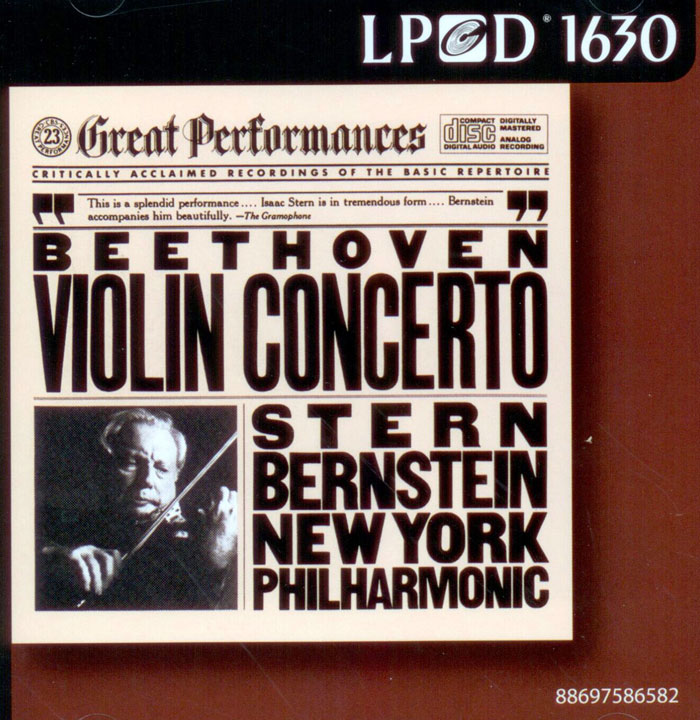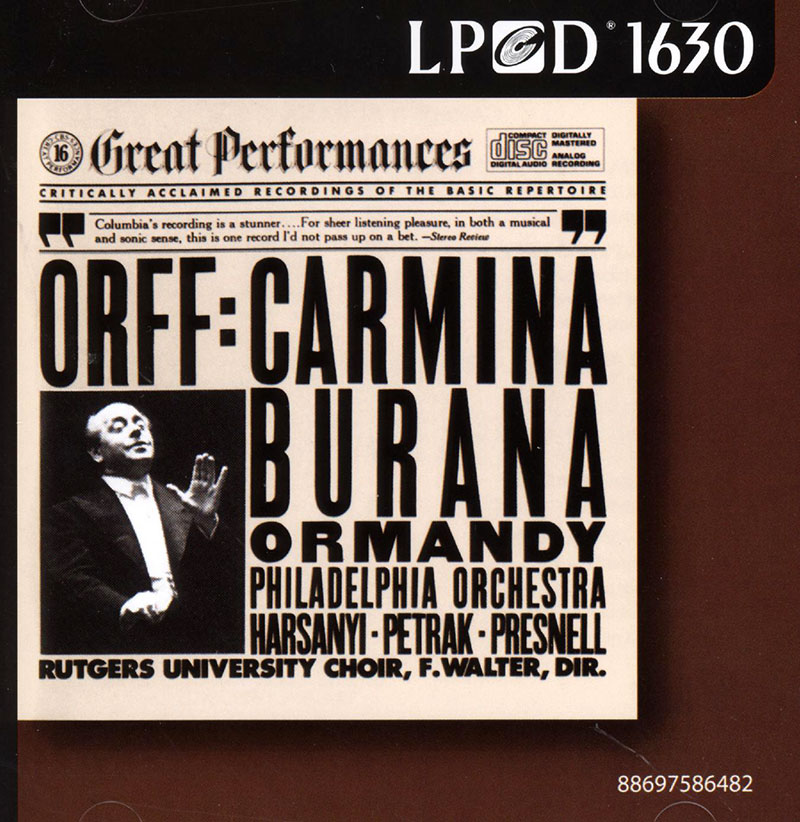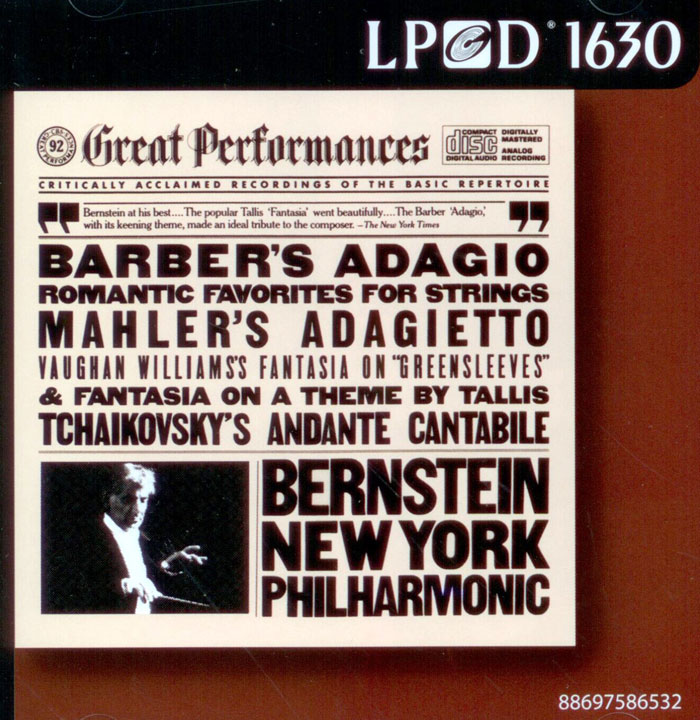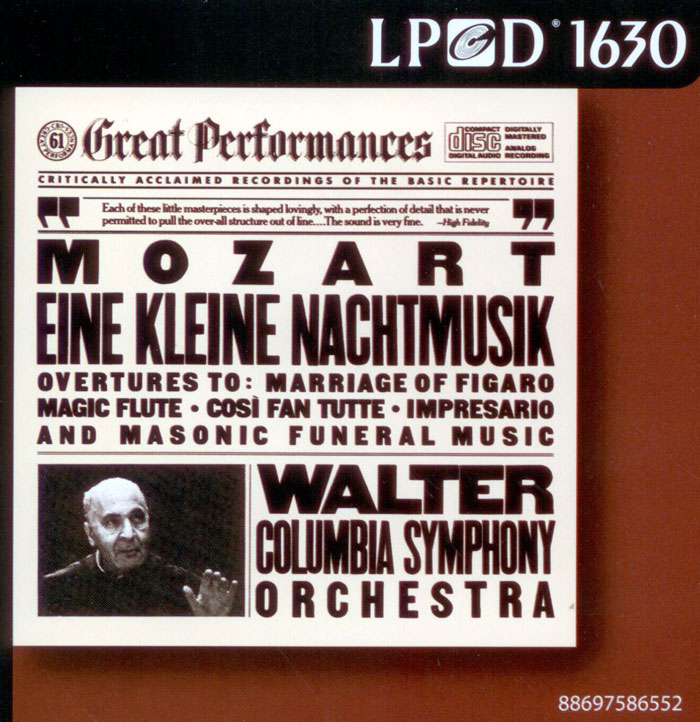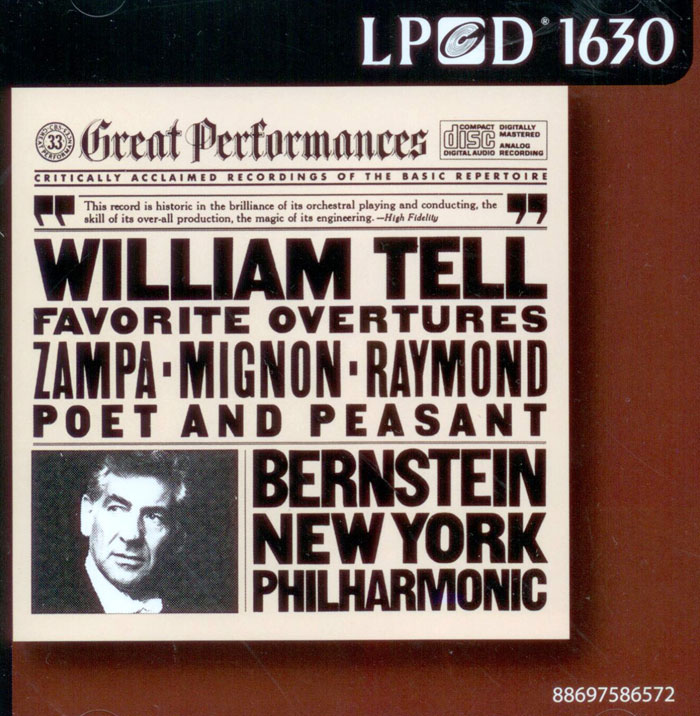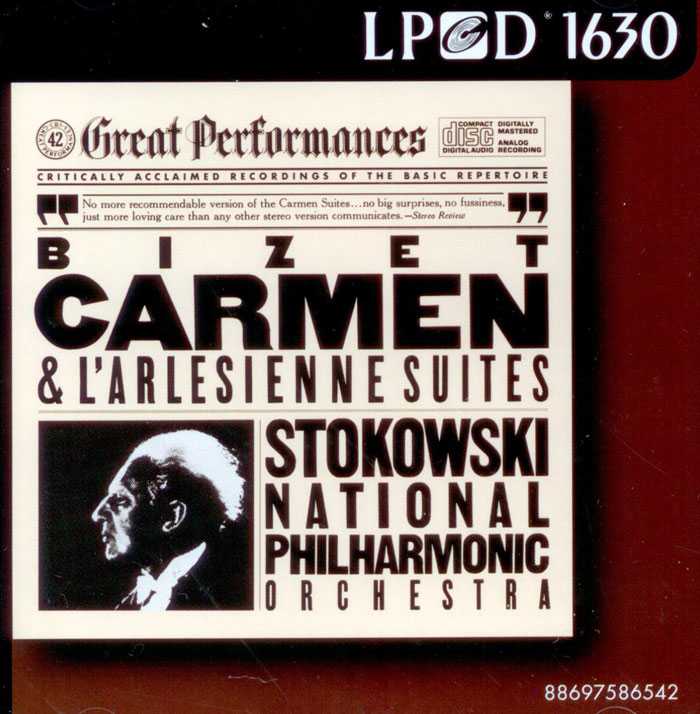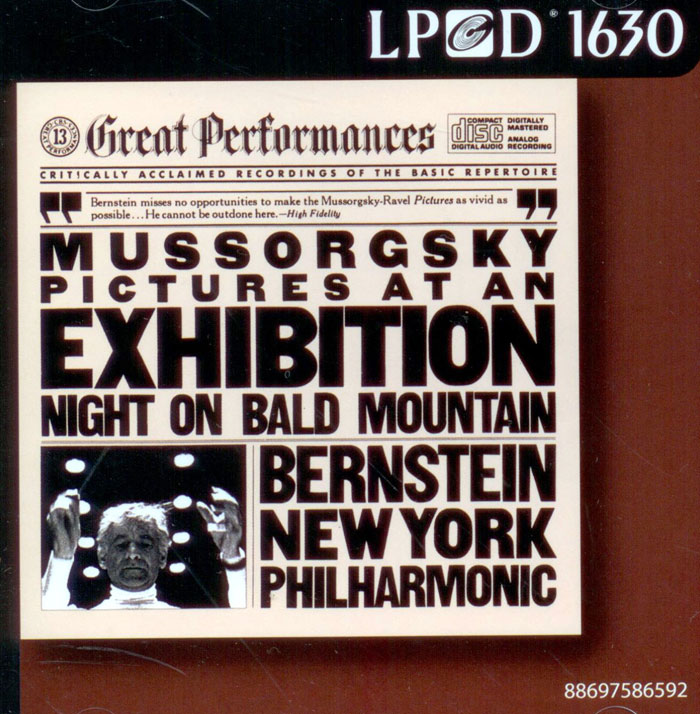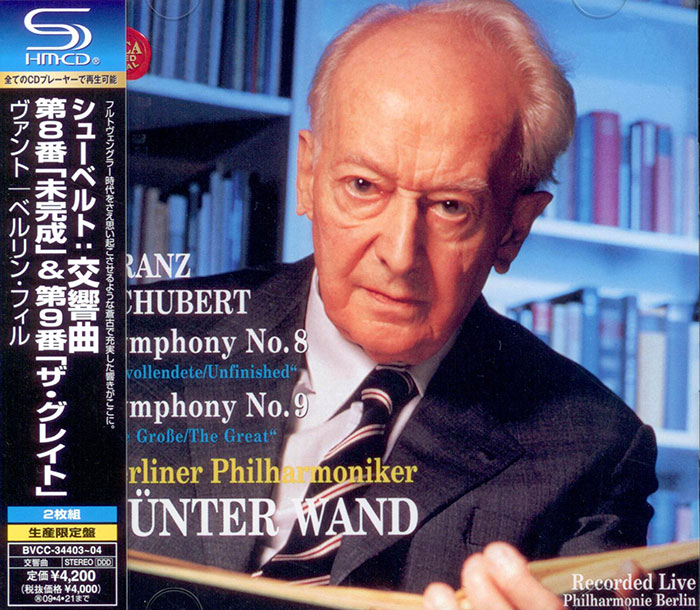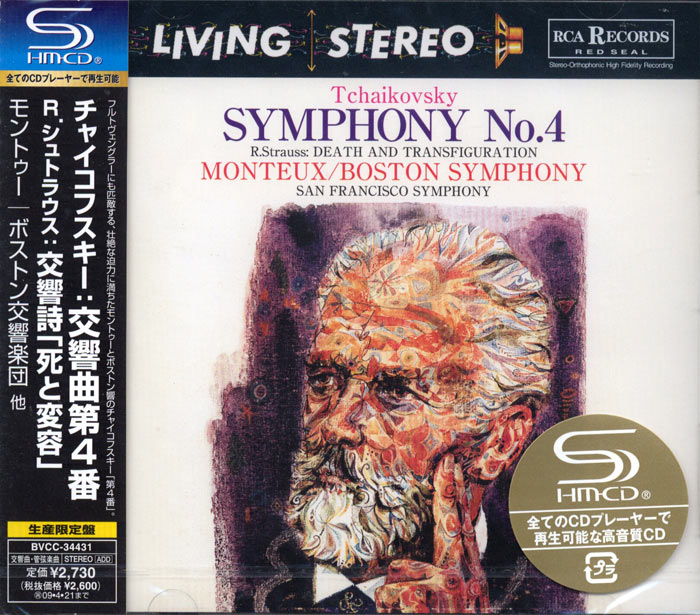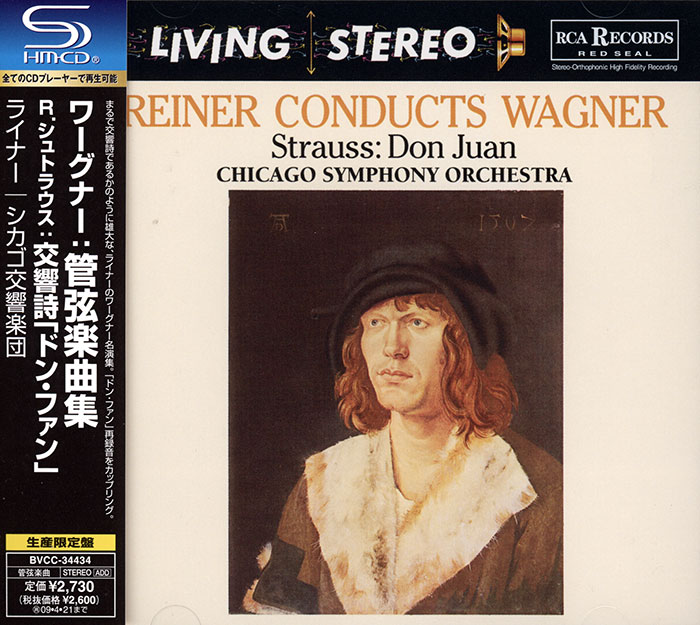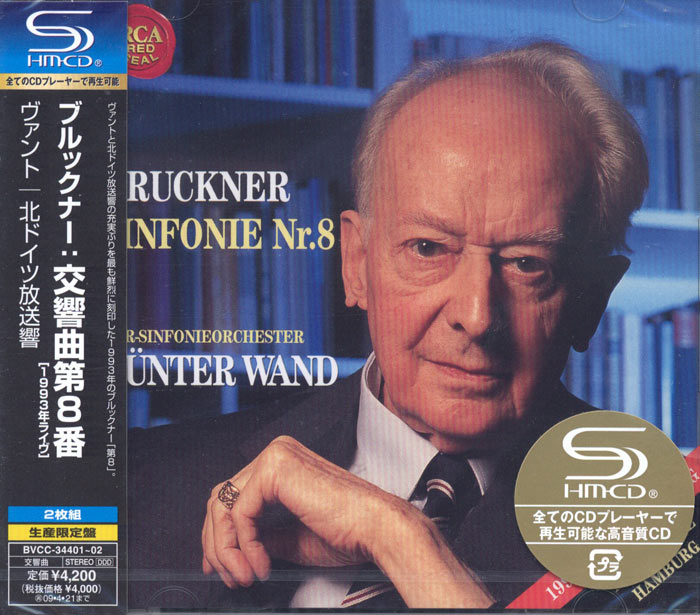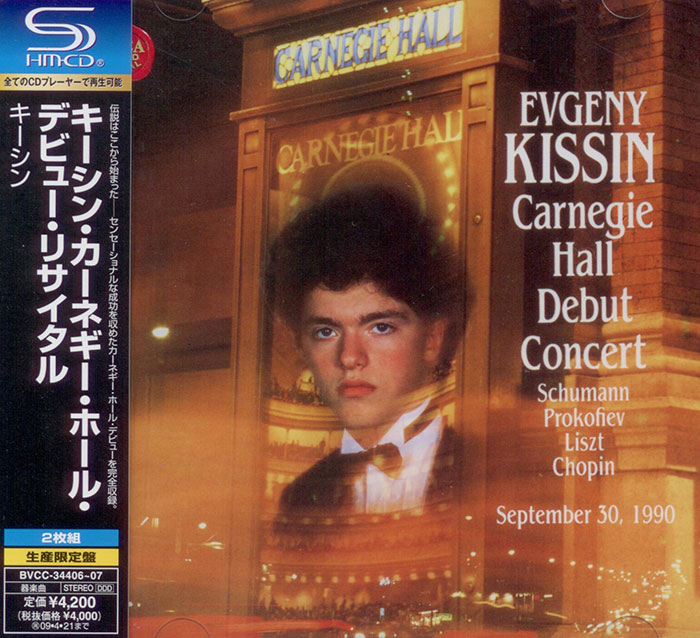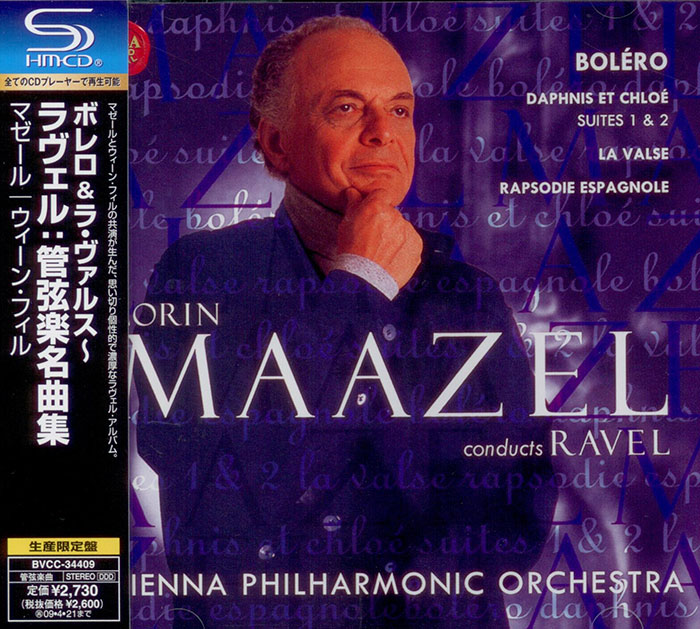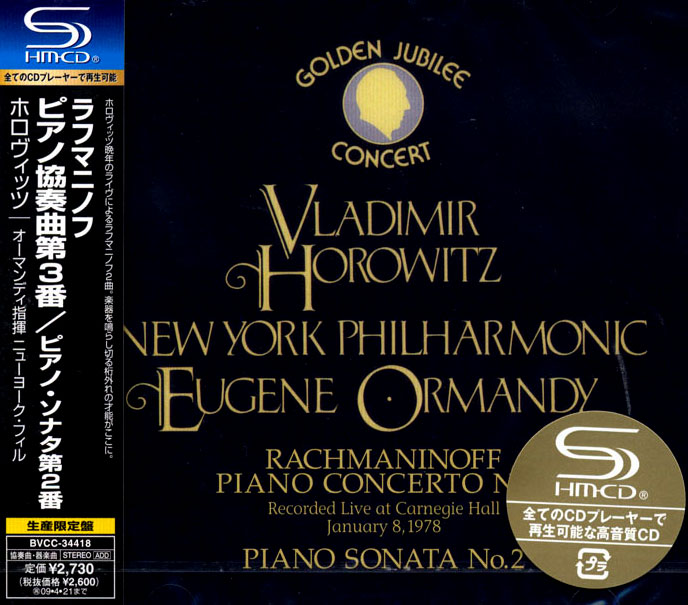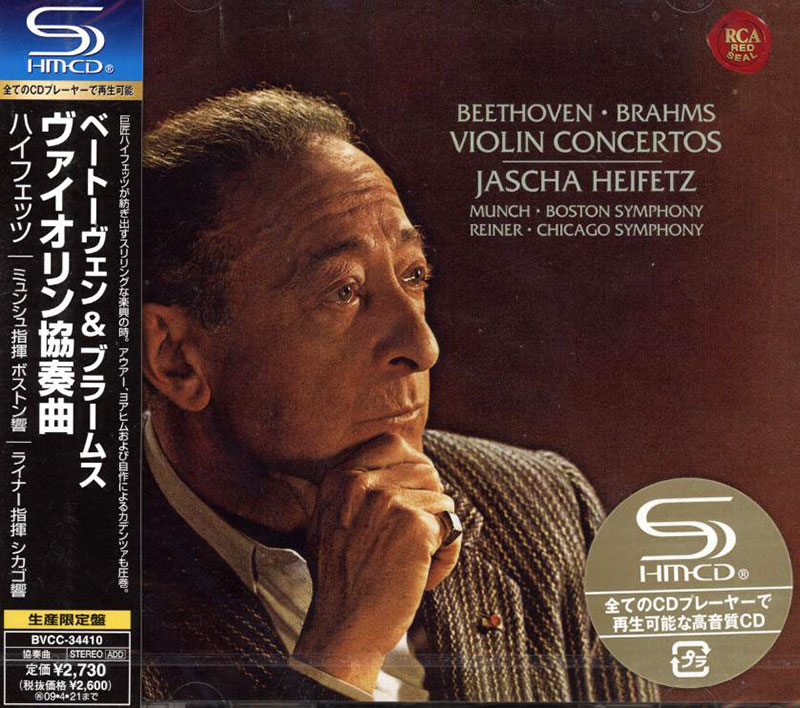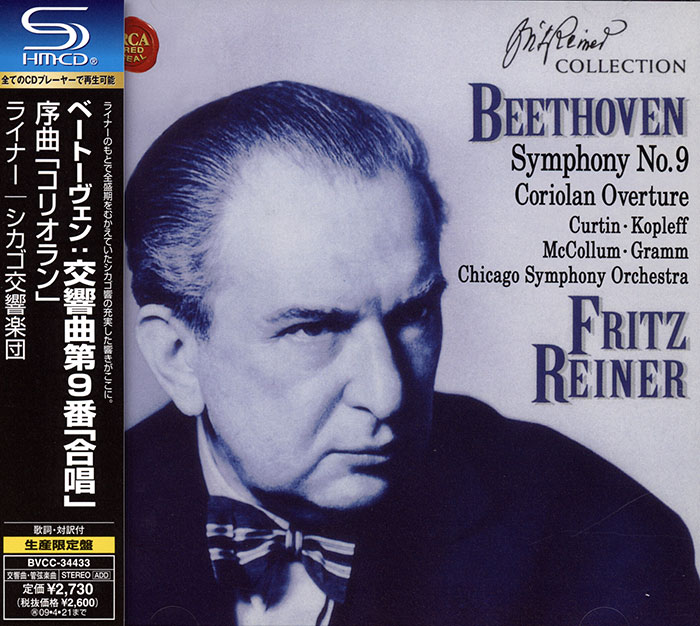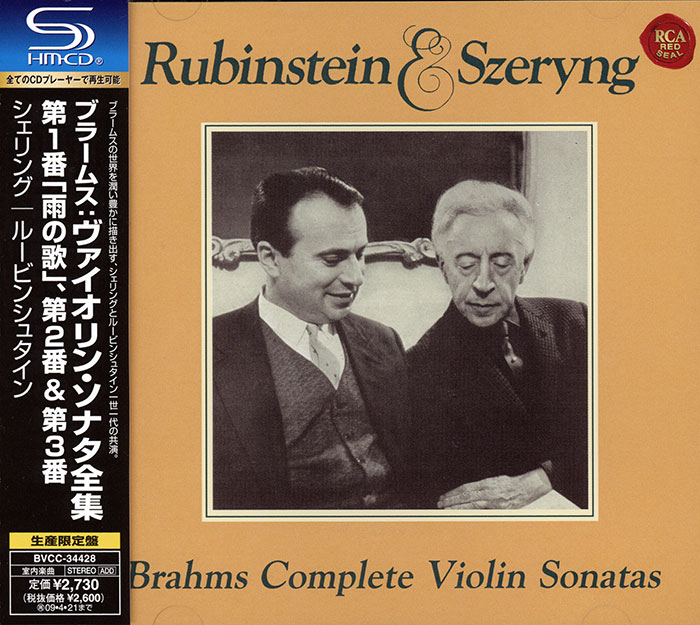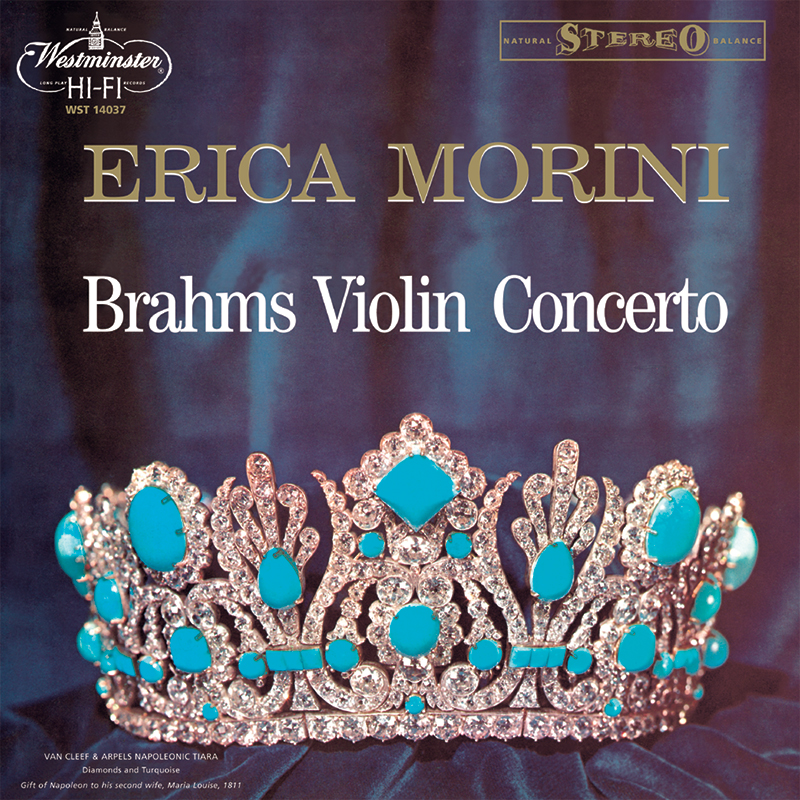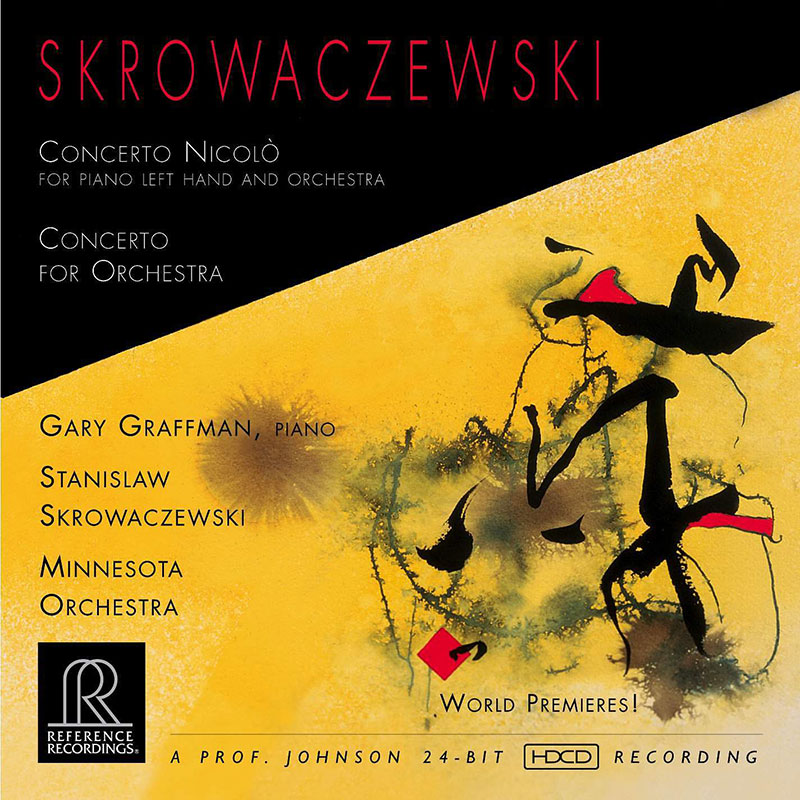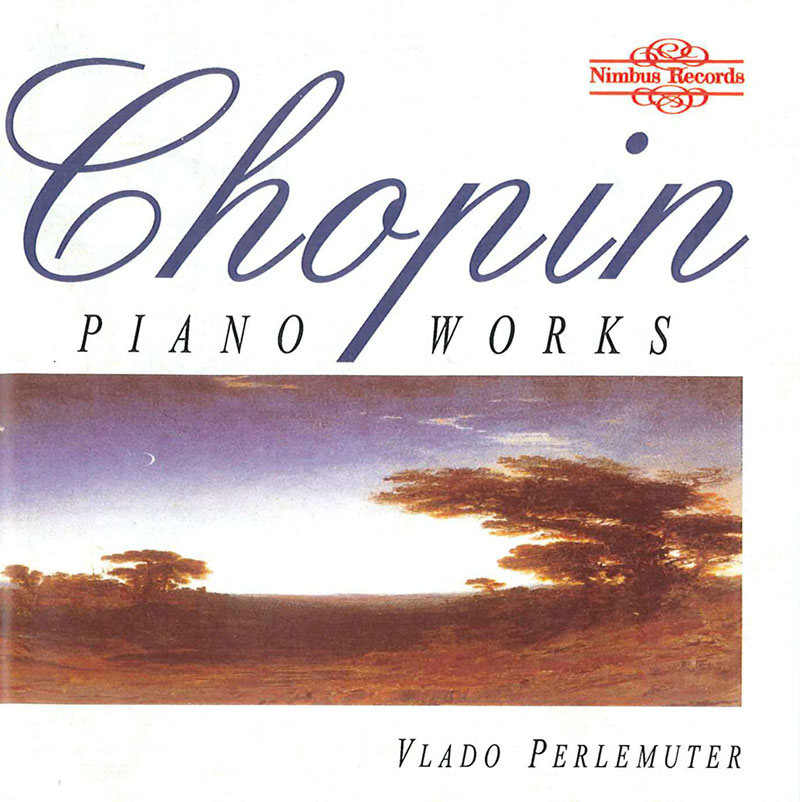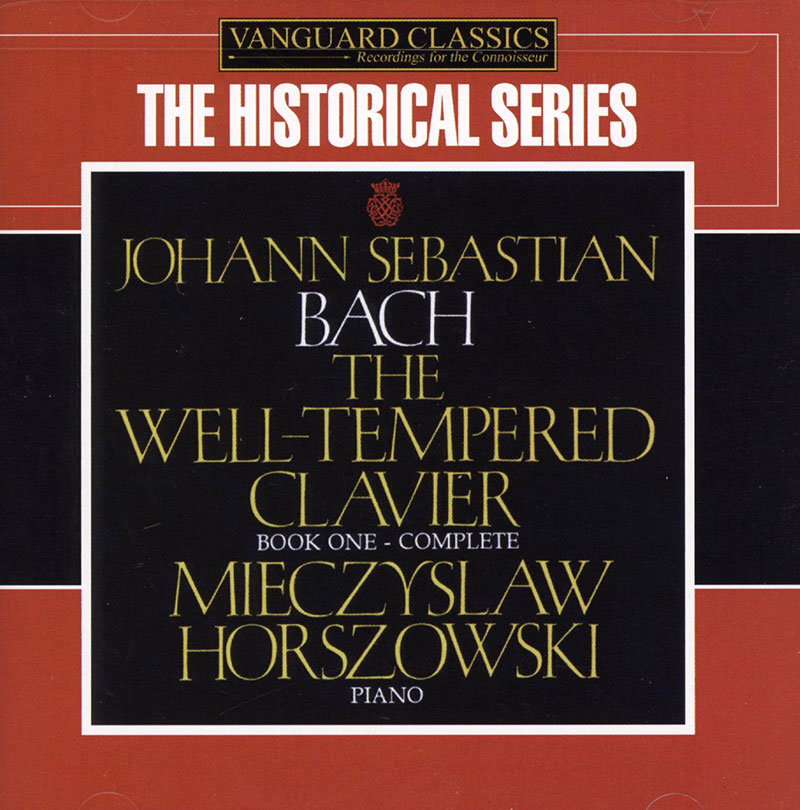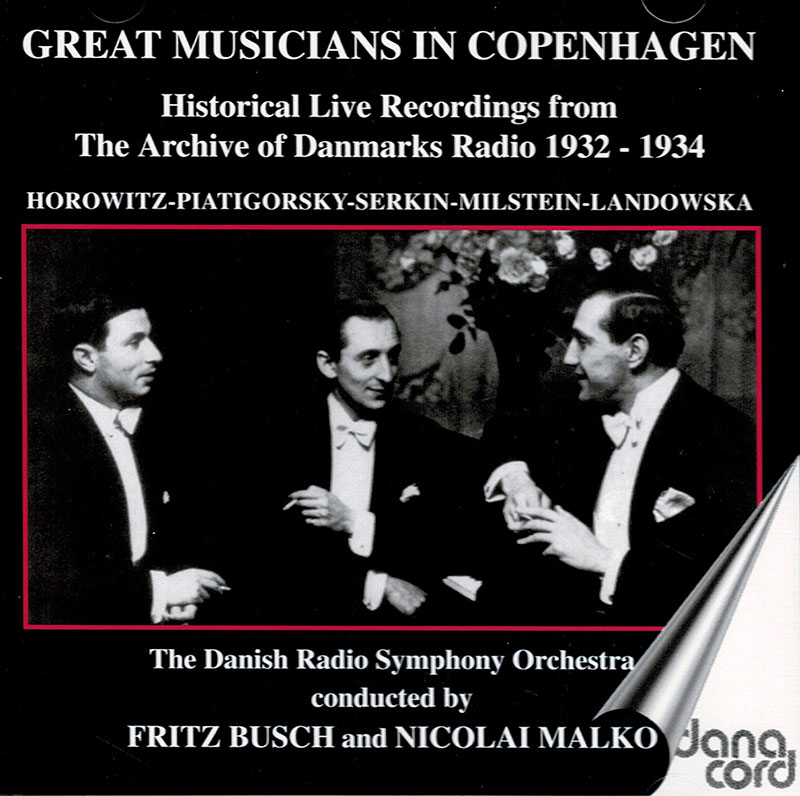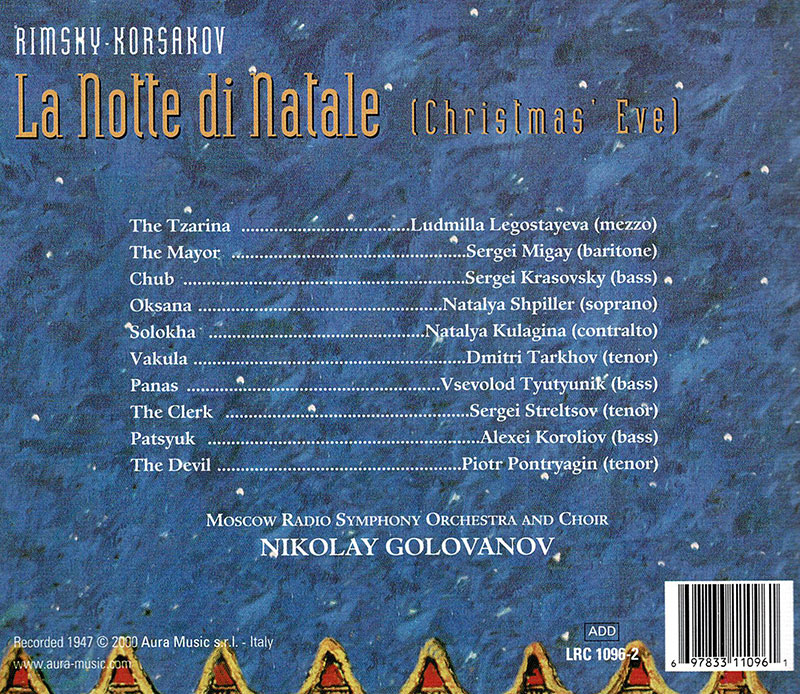Logowanie
Dlaczego wszystkjie inne nie brzmią tak jak te?
ENCYKLOPEDIA arcydzieł
SCHUMANN, PROKOFIEV, LISZT, CHOPIN, Evgeny Kissin
Carnegie Hall Debut Concert - September 30, 1990
Jeden z najbardziej spektakularnych debiutów ostatniego półwiecza!
Winylowy niezbędnik
ClearAudio
Cartridge Alignment Gauge - uniwersalny przyrząd do ustawiania geometrii wkładki i ramienia
Jedyny na rynku, tak wszechstronny i właściwy do każdego typu gramofonu!
ClearAudio
Harmo-nicer - nie tylko mata gramofonowa
Najlepsze rozwiązania leżą tuż obok
IDEALNA MATA ANTYPOŚLIZGOWA I ANTYWIBRACYJNA.
Osobowości
SKROWACZEWSKI, Stanislaw Skrowaczewski, Minnesota Orchestra
Concerto Nicolo for piano left hand and orchestra
WORLD PREMIERE!
RIMSKY-KORSAKOV, Ludmilla Legostayeva, Sergei Migay, Sergei Krasovsky, RTV Symphony Orchestra Moscow, Nikolai Golovanov
La Notte di Natale (Christmas Eve) - 1947 Nikolay Golovanov
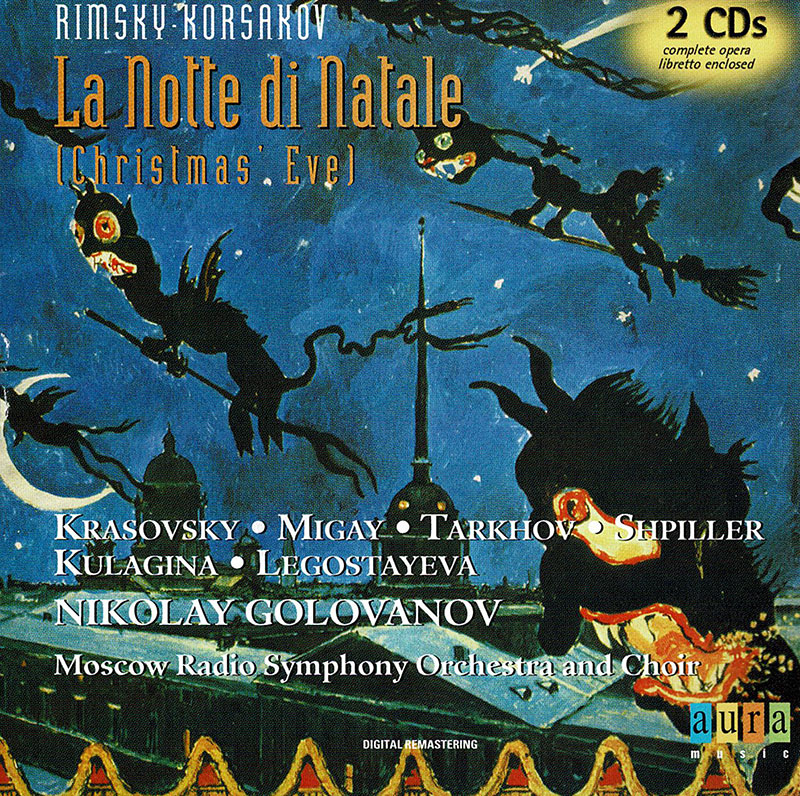
- Rimsky-Korsakow - La notte di natale (Christmas Eve) (1)
- 01. Introduction (3:31)
- 02. Solokha and the Devil (5:24)
- 03. Panas and Chub (4:19)
- 04. Vakula and Chub (8:40)
- 05. Oksana aria (7:11)
- 06. Oksana and Vakula (4:59)
- 07. Kolidka of the young maiden (5:47)
- 08. Solokha and the Devil (3:49)
- 09. Solokha and the Mayor (2:21)
- 10. Solokha and the Clerk (7:29)
- 11. Solokha and Chub (6:00)
- 12. Solokha and Vakula (5:01)
- 13. Koliadki (4:53)
- Moscow Radio Symph. Orch. and Choir - N. Golovanov - Rimsky-Korssakoff, Nicolaj - La notte di natale (Christmas Eve) (CD2)
- 01. Panas and the Choir (10:58)
- 02. Finale w/Chourus (1:37)
- 03. Act III Vakula at Patsyuk's Home (3:29)
- 04. The Devil and Vakula (3:00)
- 05. Dance of the Stars (5:12)
- 06. Devil's Koljadka (5:17)
- 07. Plonaise with Chorus (4:38)
- 08. Tzarina, Vakula and Zaporgos (7:02)
- 09. Ovsen's and Koljiada's Train (7:38)
- 10. Act IV Introduction and duet of country women (3:54)
- 11. Aria of Oksana (6:36)
- 12. Vakula and Chub (2:14)
- 13. Oksana, Vakula and Chub (1:39)
- 14. Chorus, Osana Vakula and Chub (0:51)
- 15. Epilogue: triburte to Gogol' (1:38)
- Ludmilla Legostayeva - soprano
- Sergei Migay - baritone
- Sergei Krasovsky - bass
- RTV Symphony Orchestra Moscow - orchestra
- Nikolai Golovanov - conductor
- RIMSKY-KORSAKOV
Jeffrey Lipscomb 4.0 out of 5 stars A Magical Performance In Old Sound June 1, 2005 Rimsky-Korsakov's 1895 opera "Christmas Eve" is based on the same Gogol short story as Tchaikovsky's Vakula the Smith (Cherivichki), and I feel that Rimsky's is by far the better work. It tells the tale of a Ukrainian blacksmith who falls in love with a village beauty who disdains him, and with the help of the devil he fetches for her a precious pair of slippers from the Tsaritsa. This is music filled with village life, folk characters, and numerous fantasy elements - and it's all quite enchanting. This 2-CD set from Lyrica is a bare bones production: no story synopsis, no information on the singers, no libretto, with just a list of tracks that indicate which characters are singing. The sound is actually a good deal better than the old 3-LP Ultraphone set I bought second-hand years ago (the latter indicates a recording date of 1948, whereas Lyrica has 1947). And, of course, one of the chief attractions is the opportunity to hear the great Russian conductor Nikolai Golovanov in a complete opera recording. So far as I know, the opera is given complete (I have never heard another recording). Through old but very listenable sound a first-rate performance is heard here. Golovanov leads a well-shaped and exuberant reading, and the singers are all pretty exceptional. You may have to make some adjustments if you aren't already acquainted with Russian opera singers. As Oksana, the village beauty/shrew, Natalya Shpiller (who also sang in Golovanov's recording of the Mozart Requiem on Arlecchino) has one of those Slavic voices whose high notes may occasionally threaten the paint on your ceiling. But for the most part, she's excellent: secure in pitch, agile, and graceful. The Vakula is sung by Dmitri Tarkhov's heroic tenor in attractive voice (despite some very keenly-honed high notes). All the singing here is well-characterized and sincere (something I don't hear very often on my rare ventures into the opera house these days), and all the supporting roles are well-cast (mezzo Ludmilla Legostayeva, bass Sergei Krasovsky, etc.). This excellent performance has another unusual distinction provided by its fine singers. On CD 2, track 1 bass Krasovsky interpolates a low C, while in the last scene soprano Shpiller takes a high C sharp. That equals just over four octaves of well-executed singing - a phenomenon I have never heard in any other operatic recording. Highly recommended. Jeff Lipscomb
